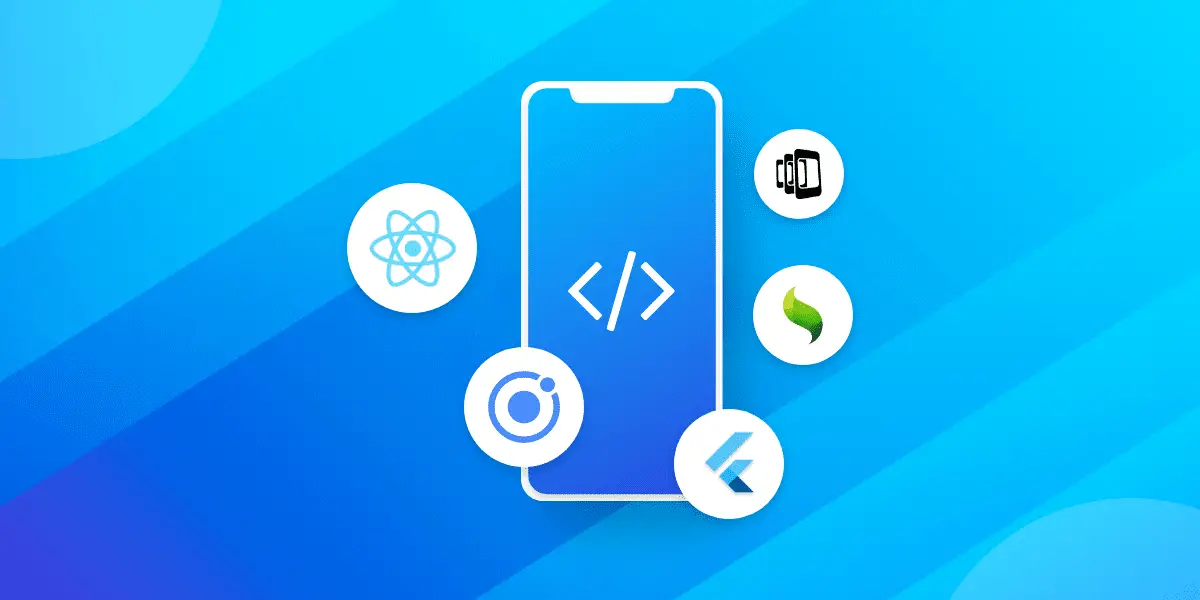
 Businesses wouldn’t risk losing out on either the Google Play Store or the Apple App Store in today’s dynamic and cross-platform app development services.
Businesses wouldn’t risk losing out on either the Google Play Store or the Apple App Store in today’s dynamic and cross-platform app development services.
Budgeting is frequently a concern with native applications. To reach both Android and iOS users, firms have turned to cross-platform app development.
Before learning where this framework category is in 2022, it’s vital to learn the fundamentals.
Native vs. Cross-Platform App Development
The argument over native vs. cross-platform has raged for years. Some experts prefer native applications over cross-platform apps. However, firms like Uber are rewriting their driver app using their cross-platform software framework—Ribs.
Native and cross-platform development technologies are always evolving. Due to the ever-changing nature of technology, these concerns should be examined periodically to determine which alternative is presently winning.
A competent design that remains close to the target platform is the goal of native app development (i.e., Android, iOS, etc.).
Cross-platform frameworks aim to create apps that reach as many brand fans as possible by supporting a broad range of end devices throughout the development process.
Obstacles in Cross-Platform App Development
Until recently, cross-platform app development was limited to mobile applications and games. Cross-platform development has become more adaptive, powerful, and versatile as new technologies emerge.
The following issues remain, however:
- Performance issues due to incompatible native and non-native device components
- Cross-platform app developers struggle to keep applications compliant across devices and OS.
- Performance flaws might lead to a bad user experience.
- Cross-platform applications are not always a smart choice for managing a company or storing user data owing to security issues.
These drawbacks are minor compared to the advantages of cross-platform software development.
1. Maximum exposure to the target audience
A corporation may design an app and publish it across many platforms, including the web, using mobile cross-platform development. This implies that a single software may target both iOS and Android. Increasing their reach.
2. Lower Development Costs
This is built on the ‘write once, run everywhere’ principle. Reusable code and Agile app development technologies help reduce development costs. Cross-platform applications are the only method to enhance a company across numerous platforms while keeping costs down.
3. Maintainability & Deployment
In cross-platform app development, a single program may operate on all platforms. This makes it easy to update and deploy code. It saves time and money by synchronizing updates across platforms and devices. Also, if a defect is detected in the shared codebase, just one repair is required. This saves time and money for developers.
4. Faster Development
Developing cross-platform applications quickly is another win-win scenario. The use of a single source code for different platforms reduces development time by 50-80% The method helps create a feature-rich business app faster. The cross-platform app development team can fulfill deadlines.
5. Code reuse
This platform’s code may also be reused. Code may be reused instead of creating new programs for each platform. This saves time and money by eliminating repetitive coding tasks.
6. Easy Cloud Integration
Cross-platform mobile applications are fully interoperable and may use cloud-based plugins. Various plug-ins and extensions expand the app’s scalability and capabilities.
7. Customization and Time-to-Market
As stated before, cross-platform software development follows the ‘write once, run everywhere’ principle. This reduces Time-to-Market (TTM) for app developers.
Also, if the software has to be modified, developers may make simple modifications in a single code. This improves client involvement and speeds up product delivery.
8. Consistency
Users can identify UI components and predict their behaviors across platforms. Thus, User Experience (UX) is critical for every program or platform.
Syncing numerous development projects is difficult. Cross-platform mobile development tools help designers and developers to provide a consistent app user experience.
For cross-platform development services, please visit https://stfalcon.com/en/services/cross-platform-development.